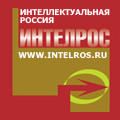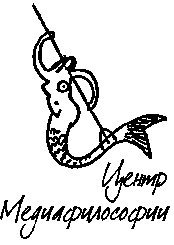| Agon as an Greek ”Genome” to the European Сulture |
| Written by Viacheslav Shestakov |
| Wednesday, 08 September 2010 15:10 |
|
Two controversial views on the human being exist in contemporary social science. The first one understand human as a “Naked ape”, as an aggressive animal, with the domination of the instincts of violence. Konrad Lorenz, who spent four years in Russian prison as a Nazi, wrote the book “Introduction to Ethnology”, which got a Nobel Prize in 1973. The book is focused on animal behavior, but includes also some sentences about human beings. Lorenz considered that tendency to aggression was based on biological nature and could not be controlled by social power. He suggested that aggression, division on aggressors and victims, is deeply rooted in human nature. The second view shows that human aggressiveness is a rudiment of archaic history, which had a great influence on history, but could be somehow controlled and transformed by culture and social institutions. There are a number of authors with such ideas, who applied it to Greek history. They used idea about “agonistic” treats of Greece culture. The first one, who developed notion “agon” and applied it to cultural history was Jacob Burkchard. In his lectures on Greek civilization, which followed his world known book “Culture in the History of Renaissance”, he wrote: “All high life among the Greek, active as well as spiritual, took on the character of the agon. Here excellence and natural superiority were displayed, and victory in the agon, that is noble victory without enmity, appears to have been the ancient expression of the peaceful victory of an individual”.[1] Those two opinions are easily to find in many historical and cultural studies. Homer’s poems demonstrated a lot of violence and aggressiveness. But classical Greece showed a new cultural phenomenon: instinct of struggle survived, but from real battles and violent of wars it transformed aesthetically to peaceful competition. As Burkchardt wrote, agonale man belonged only to Greece, agon is a distinguish feature only for a Greek culture. “Agon ist Triebkraft, die kein anderer Volk kennt”. (Agon is an inner power, which does not exist in any other nations). Only classical Greece produced “agonale Man”. We can not find agon in Oriental culture. Agon is a historical result of new period of Greek history, which followed after archaic. It became at the time, when wars were ended, and open opportunities for peaceful competitions. War and agon are different social events. As Burkchardt said, “Wer den Krieg hat, bedarf des Turniers nicht”. (Who run a war, dose not needs tournaments). This agonistic phenomenon exists in every segment of the Greek culture: in philosophy, drama, music, poetry, visual art, sport. Agon — the place for wrestling, boxing and athletics — became the pra-phenomenon of this culture. Here aggressiveness transformed into play, violence to competition, struggle and suffering to the catharsis. Agon is a result of great popularity competition in sport. In ancient Greece there were a number of national competitions, such as Olympian, Pythian, Nemian, and Istmian games. Winners of this game became national heroes. In there honor statues were built, their names kept in memory of many generations. Greek poet Pindar wrote a number of sentences about these games. His writings includes “moral credo” of the victors of agon: his success is a result of hard work, it includes strong morality, honesty, harmony between body and soul etc. Agon is very good school for muscularity. The real kingdom of agon is drama, because it is a battle of characters, the struggle with the fatum. Greek tragedy was born not from the spirit of music, as Nietzsche said, but from the spirit of competition. Music itself was an emulative art. Greek literature is full of thousands stories about musical competitions. The singer Famira tried to compete Muses in singing. The beautiful example is a myth about competition between Apollo, the god of Music, and satyr Marcy. The last one loved to play flute and challenge Apollo to the competition. But Apollo was a winner. After that he tied Marcy to the three and skinned He put satyr’ pelt in the cave in city Kelenach. The dead skin produced sad sounds, when somebody plays on flute. Another myth tells about musical competition between Apollo and Pan. Everybody, who presented on competition, were agree, that winner was Apollo, with the exception of king Midas. As a punishment Apollo presented him the ears of donkey. Many agonal motives were also in painting. Pliny in “Historia Naturalis” tells the story about competition between two Greek painters — Appeles and Protogen. Ones Appeles decided to visit his friend Protagen in his workshop. But that time Protagen was out of his studio. As an evidence of his visit Appeles draw on the desk a very fine line. When Protagen returned, he saw the line and understood who was the visitor. So he also painted a line nearby, trying to do it better than Appeles. And than he left. When Appeles returned again, he saw two lines and then he draw the third one. This line was so fine and beautiful, that Protagen acknowledged his defeat. It seems, that Pliniy’s history of painting is history about competition of different masters in art of drawing. Same was in Greek mind. In Greek philosophy agon created dialogue as a method of thinking and discussion. The nature of Greek Logos is agonistic. Plato’s dialogues are intellectual competitions, the battle of ideas. In the contrary to the Oriental philosophy, the Greek philosophy was developed as a struggle of different schools of thinking. Even the language was understood in the term of agonistic discussions. Sophist philosopher Gorgias suggested that many speeches involves “demolishing of opponent as one would destroy an enemy of battle”. That is why the competitive nature of language was using “warfare” metaphors. In conclusion, we can say that whole Greek culture was influenced by agon. That was shown by the many studies by Jacob Burckhardt, Friedrich Nietzsche, Johann Huizinga, Nicolay Bachtin, and many other historians of culture. Ancient tradition has great influence on European history. For many centuries Greek hero was a symbol of high morality and struggle against social chaos and barbarity. Late Middle Ages and early Renaissance try to revive many things from the ancient Greece and Rome. Pedagogical system of Humanism was based on Greek education in attempt to harmonizing intellectual and physical exercises. Ancient heroism was in the memory of many philosophers of the age of Renaissance and Enlightenment. Italian philosopher Giambattista Vico, the first European philosopher of history, was focused on phenomenon of heroism in ancient history. In his pioneer work “Szienza nuova” (1725) he divided history for three periods: “age of the Gods”, “age of the Heroes” and “age of Human”. The first rules by Gods law, the second — by law of Power, the third — by law of Reason. The first period created theocratic government, the second — aristocratic state, and third one — democratic republic and monarchy. Vico was first philosopher, who developed idea of progress in history. He considered that history is inconvertible, and that is why age of Heroes is impossible to return back. He wrote: “Heroism is impossible now. We need to make conclusions: the depressed people need heroes, philosophers studied them, and poet’s dreams about them, but social life could not produce heroism anymore” (S.N., p.205). But in 18th century ideology of Enlightenment try to revive memory of heroes Antiquity. Robespierre in his revolutionary speeches in Convent mentions the Greek and Roman heroes as examples for imitation for whom, who want to build Republic in France. French painting of this period, particularly special historical painting of Luis David, full of images of heroes of Greece and Rome. French bourgeoisies made Revolution dressing in the antic costumes. Drama and poetry of the Classicism try to revisited world of ancient mythology and antic heroes. Unfortunately, was far away from real ancient history. Among the European poets much more close to understanding ancient heroism was Russian poet Alexander Pushkin, who survived for Russian readers originality of Classical poetry. His poetry had many associations with Greek and Roman poetry. Pushkin relations to ancient poetry, to it heroic pathos is a great subject for studies in Russia and abroad as well. Roman Empire had a great territory, which need a great army to defense and dominate. I think that best image of militarism of Roman empire belongs to English poet Wystan Auden, who describes a Roman soldier on the wall, which crossing Britain territory to save Roman army from the foreign invasions. Over the heater the wet wind blows, Here we could see ironical view on Roman hero as a controversy to the traditional image of Roman hero. There are large theoretical literature concerning classical heroism and its role in history. It seems that antiquity was always used for ideological reasons. “Cult of Heroes” was developed by Thomas Carlyle, philosopher from Scotland. In 1840 he published popular book “On Heroes, hero-worship and the heroic in history”, where he interpreted heroism in the term of religious ethics. To him hero is prophet, who transformed Gods will to the ordinary people. In 20th century concept of “hero” and “heroism” became synonymous of national patriotism and applied to the different national histories — French, Russian, German, and Japan. That created national images of heroism, sometime very nontraditional. German philosopher Max Scheler connected heroism with militarism. For him the Hero is only military man, the ideal Soldier (“Zum Helden”). Japanese philosopher Kitajama in his book ‘Heroics Ethos” (1944) interpreted the heroism as fatalism. He identified heroism in tradition of samurai ethics with the drive for death. Russian Marxist philosopher Anatoly Lunacharsky applied idea of heroism to the class struggle. In his book “Heroism and Individualism” he negated all individual heroism and, as a contrast to it, proposed idea of the “mass heroism” as a real power of the history. It seems that all such concepts could not negate that home country of hero and heroism is ancient Greece. Contemporary meaning of these moral values is deeply connected with history and culture of that nation. Memory of heroic period of the ancient history is a Greek “genome” in the body of European culture. Bibl.: Шестаков В. П. Концепция героизма в античной этике // Вестник истории мировой культуры, № 2, 1960. P. 16–30 (In Russian with English Resume). [1] Burkchardt J. The Greeks and Greek Civilization. N.Y., St. Martin Press. 1998. P. 165 |























 Agon as an Greek ”Genome” to the European Сulture
Agon as an Greek ”Genome” to the European Сulture